Filter by

Connectionist Representations of Tonal Music Discovering Musical Patterns by…
Intended to introduce readers to the use of artificial neural networks in the study of music, this volume contains numerous case studies and research findings that address problems related to identifying scales, keys, classifying musical chords, and learning jazz chord progressions. A detailed analysis of the internal structure of trained networks could yield important contributions to the fiel…
- Edition
- -
- ISBN/ISSN
- 9781771992206.01
- Collation
- -
- Series Title
- -
- Call Number
- 6 x 9, 312 pages
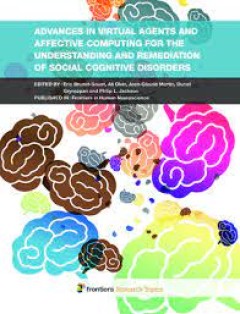
Advances in Virtual Agents and Affective Computing for the Understanding and …
Recent advances in computer technologies and research now enable to simulate realistic social interaction thanks to the use of increasingly complex computer models. Virtual agents reproducing both human appearance and expressive behaviors are now available for supporting affective interactions with users. Two deeply intertwined fields of knowledge already benefit from such innovations concernin…
- Edition
- -
- ISBN/ISSN
- -
- Collation
- -
- Series Title
- -
- Call Number
- 617 BRU a
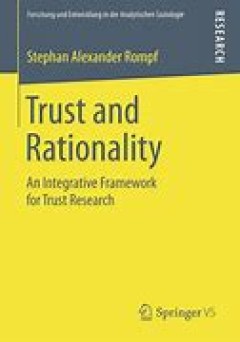
Trust and Rationality An Integrative Framework for Trust Research
Combining economic, social-psychological and sociological approaches to trust, this book provides a general theoretical framework to causally explain conditional and unconditional trust; it also presents an experimental test of the corresponding integrative model and its predictions. Broadly, it aims at advancing a cognitive turn in trust research by highlighting the importance of (1) an actor�…
- Edition
- -
- ISBN/ISSN
- 978-3-658-07327-5
- Collation
- 48 b/w illustrations
- Series Title
- -
- Call Number
- -
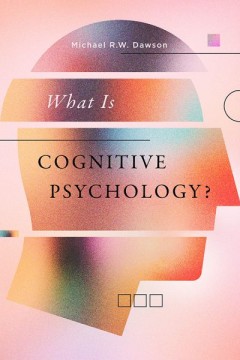
What Is Cognitive Psychology?
What Is Cognitive Psychology? identifies the theoretical foundations of cognitive psychology—foundations which have received very little attention in modern textbooks. Beginning with the basics of information processing, Michael R. W. Dawson explores what experimental psychologists infer about these processes and considers what scientific explanations are required when we assume cognition is …
- Edition
- -
- ISBN/ISSN
- 9781771993418.01
- Collation
- -
- Series Title
- -
- Call Number
- 6x9, 200 pages
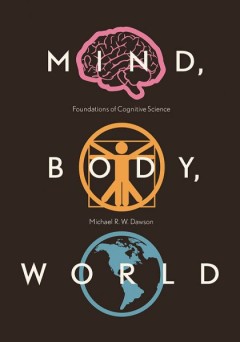
Mind, Body, World Foundations of Cognitive Science
Examples, cases, and research findings taken from the wide range of phenomena studied by cognitive scientists effectively explain and explore the relationship among the three perspectives. Intended to introduce both graduate and senior undergraduate students to the foundations of cognitive science, Mind, Body, World addresses a number of questions currently being asked by those practicing in th…
- Edition
- -
- ISBN/ISSN
- 9781927356173.01
- Collation
- -
- Series Title
- OPEL (Open Paths to Enriched Learning)
- Call Number
- -
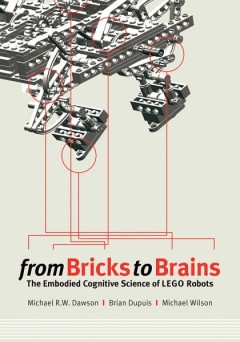
From Bricks to Brains The Embodied Cognitive Science of LEGO Robots
From Bricks to Brains introduces embodied cognitive science, and illustrates its foundational ideas through the construction and observation of LEGO Mindstorms robots. Discussing the characteristics that distinguish embodied cognitive science from classical cognitive science, From Bricks to Brains places a renewed emphasis on sensing and acting, the importance of embodiment, the exploration of …
- Edition
- -
- ISBN/ISSN
- 9781897425787.01
- Collation
- -
- Series Title
- -
- Call Number
- 354 pages
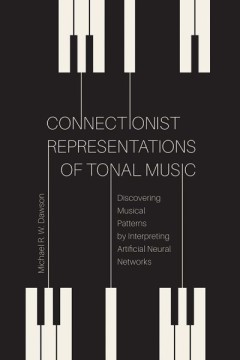
Connectionist Representations of Tonal Music Discovering Musical Patterns by…
Intended to introduce readers to the use of artificial neural networks in the study of music, this volume contains numerous case studies and research findings that address problems related to identifying scales, keys, classifying musical chords, and learning jazz chord progressions. A detailed analysis of the internal structure of trained networks could yield important contributions to the fiel…
- Edition
- -
- ISBN/ISSN
- 9781771992206.01
- Collation
- -
- Series Title
- -
- Call Number
- 6 x 9, 312 pages

Explicit and Implicit Prosody in Sentence Processing Studies in Honor of Jan…
Top researchers in prosody and psycholinguistics present their research and their views on the role of prosody in processing speech and also its role in reading. The volume characterizes the state of the art in an important area of psycholinguistics. How are general constraints on prosody (‘timing’) and intonation (‘melody’) used to constrain the parsing and interpretation of spoken lan…
- Edition
- -
- ISBN/ISSN
- 978-3-319-12961-7
- Collation
- 50 b/w illustrations, 17 illustrations in colour
- Series Title
- -
- Call Number
- -
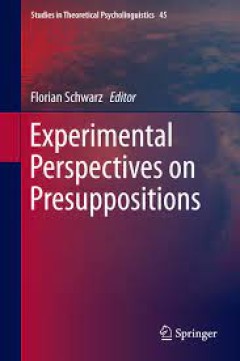
Experimental Perspectives on Presuppositions
This volume brings together some of the most recent developments in the field of experimental pragmatics, specifically empirical approaches to theoretical issues in presupposition theory. It includes studies of the online processing of presupposed content; investigations of the interpretive properties of presuppositions in various linguistic contexts; comparative perspectives relative to other …
- Edition
- -
- ISBN/ISSN
- 978-3-319-07980-6
- Collation
- 58 b/w illustrations
- Series Title
- -
- Call Number
- -
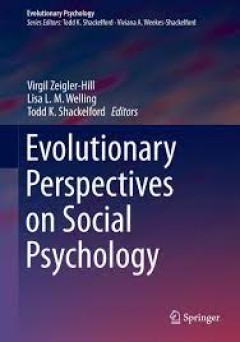
Evolutionary Perspectives on Social Psychology
This wide-ranging collection demonstrates the continuing impact of evolutionary thinking on social psychology research. This perspective is explored in the larger context of social psychology, which is divisible into several major areas including social cognition, the self, attitudes and attitude change, interpersonal processes, mating and relationships, violence and aggression, health and psyc…
- Edition
- -
- ISBN/ISSN
- 978-3-319-12697-5
- Collation
- 14 b/w illustrations, 9 illustrations in colour
- Series Title
- -
- Call Number
- -
 Computer Science, Information & General Works
Computer Science, Information & General Works  Philosophy & Psychology
Philosophy & Psychology  Religion
Religion  Social Sciences
Social Sciences  Language
Language  Pure Science
Pure Science  Applied Sciences
Applied Sciences  Art & Recreation
Art & Recreation  Literature
Literature  History & Geography
History & Geography